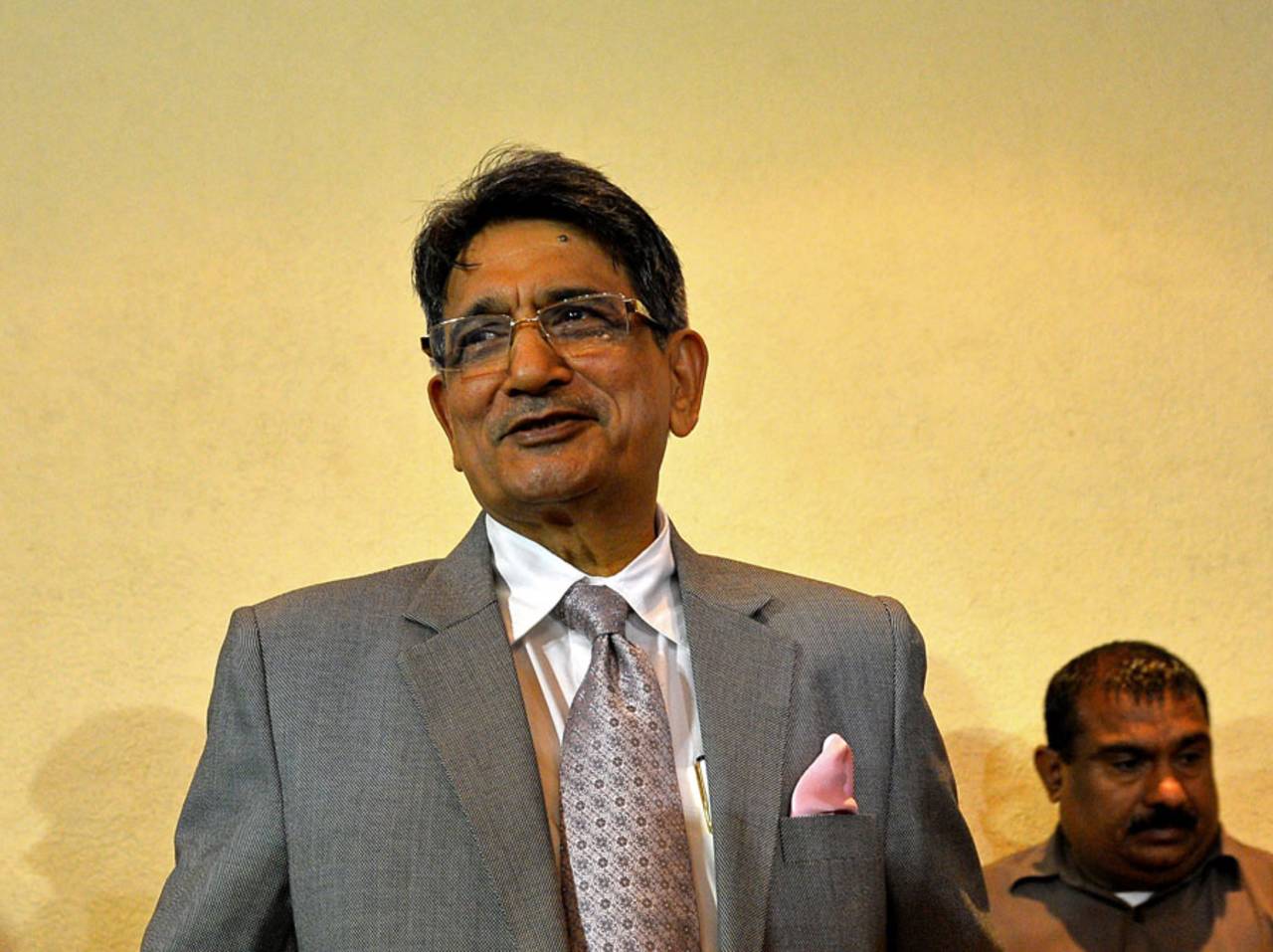BCCI governance structure a key area for Lodha panel
The six big issues within the BCCI's set-up that the Lodha panel's report to the Supreme Court could focus on

Changes to the BCCI's governance structure may be a key feature of the recommendations presented by the Lodha panel, led by Justice RM Lodha, a former Chief Justice of India • AFP
The utter lack of transparency and accountability, the panel has observed, is a disturbing trend both within the BCCI and the state associations which form its members. It is believed that the Lodha committee will emphasise the need for professional management of the sport, not only by having the appropriate form of corporate organisation in place but also by having a clear separation between governance and management within the organisation - creating a system of checks and balances and public accountability at the same time. This may require a departure from the BCCI's current corporate structure - as a society registered under the Tamil Nadu Societies Registration Act - and a restructuring of the key leadership positions, currently 'honorary' in nature. Both have been features of the BCCI right from its inception. Changes to the BCCI's governance structure may be a key feature of the recommendations.
Given the genesis of the Lodha panel's appointment, it has quite naturally been deeply concerned by the various conflict-of-interest issues prevalent within the BCCI and state associations. It is understood that the panel met BCCI president Shashank Manohar a few months ago and has since taken note of the various measures undertaken by him on the issue of conflict of interest. Manohar had written a three-page letter, listing guidelines to avoid conflict of interest, directed at BCCI members, state associations, employees with the board and state bodies, and former and current players. Legal experts have called BCCI's move a "band-aid" measure which only further serves the powerful administrators.
It is understood that a variety of options were suggested during the consultation process and considered by the committee as potential replacements for the BCCI's current structure as a registered society in Tamil Nadu. While one option would be to reformulate the BCCI's governance and operations within its existing corporate structure, legal experts believe that the committee could also suggest more radical changes, like a public trust structure.
The committee may suggest that, instead of being run as a sub-committee, the IPL could be spun off into a separate private limited company promoted by the BCCI with an overt profit motive, (or even a section-8 company that must reinvest all its profits).
The committee is likely to suggest that the concepts of governance and management be more clearly defined and separated. Given the "public function" of the BCCI, recognised by the Supreme Court, this could involve recognition and wider representation of new stakeholders, and resulting electoral reform.
Having interviewed various stakeholders, including former and current administrators in the various states, the committee is likely to also suggest rationalisation of the rules and criteria for recognition of state bodies affiliated with the BCCI. This could require disbanding a number of existing voting members who have no playing record. The committee may recommend a move towards a one-state-one-body structure. It is also likely to prioritise formulation and implementation of mechanisms and practices for the BCCI to exercise oversight over its members, their structures, elections, operations and finances.
Nagraj Gollapudi is an assistant editor at ESPNcricinfo